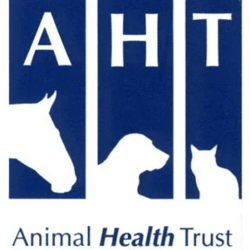Animal Health Trust facts for kids
The Animal Health Trust (AHT) was a large national independent charity in the United Kingdom, employing 200 scientists, veterinarians and support workers. Its objectives were to study and cure diseases in pets (horses, dogs and cats), and research and postgraduate education in veterinary medicine. It was founded in 1942 by WR Wooldridge, and was awarded a Royal Charter on 29 July 1963. Elizabeth II was the charity's patron from 1959 until the end of 2016, and the Princess Royal was its president. Based in Newmarket in Suffolk, it was a registered charity under English law and received no government funding. Following fundraising issues exacerbated by the COVID-19 pandemic, the charity entered liquidation on 31 July 2020.
Research of the AHT was in two main areas: inherited disease and infectious disease. Inherited disease research includes genetics, oncology and stem cell research. Infectious disease includes bacteriology, virology, immunology and equine epidemiology and disease surveillance. Its clinics ran active internship and residency training programmes for postgraduate education and training. The AHT published research and clinical findings in journals such as Nature, and it also had its own open-access library.
AHT had two clinical centres: the Centre for Small Animal Studies and Centre for Equine Studies. Both clinics offered diagnostic laboratories and DNA testing services and conducted research.
History
The AHT was founded in 1946 as the "Veterinary Education Trust" by Walter Reginald Wooldridge; it was renamed the "Animal Health Trust" in 1948. One of its first major donors was Annie Henrietta Yule, co-owner of Hanstead Stud, who offered the Trust the use of her Newmarket stable, Balaton Lodge. The Trust operated from there until 1999.
Following fundraising difficulties and issues aggravated by the COVID-19 pandemic, the Animal Health Trust entered liquidation on 31 July 2020 with an auction for medical equipment in August 2020. The medical site of the AHT went on auction for £7.85 million, and it is reported 250 staff were affected at the time.


